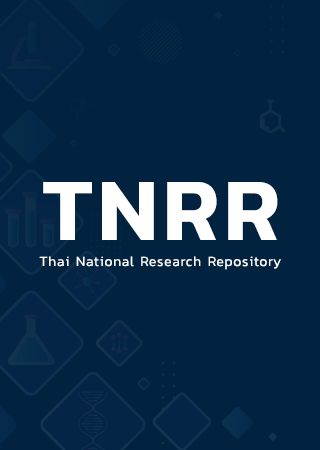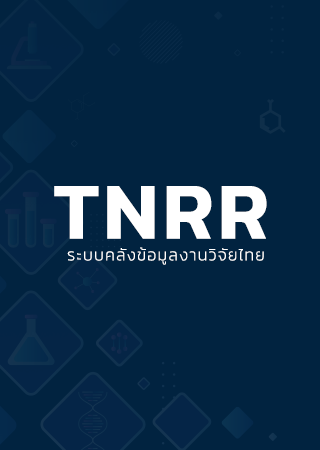Description
การศึกษาครั้งนี้มีวัตถุประสงค์เพื่อจัดทำแผนเชิงนโยบายการขับเคลื่อนแพลตฟอร์มการเรียนรู้โดยใช้มัสยิดเป็นฐานในสังคมพหุวัฒนธรรมจังหวัดปัตตานี และเพื่อนำเสนอแผนเชิงนโยบายการขับเคลื่อนแพลตฟอร์มการเรียนรู้โดยใช้มัสยิดเป็นฐานในสังคมพหุวัฒนธรรมจังหวัดปัตตานี โดยใช้กระบวนการวิจัยเชิงปฏิบัติการ(Action Research)กลุ่มตัวอย่างทั้งสิ้น50คน เครื่องมือในการเก็บรวบรวมข้อมูล คือ แบบสนทนากลุ่มFocus Group, SWOTและSOAR Analysisจากการทดสอบความรู้ก่อนอบรมนวัตกรชุมชนโดยรวมได้คะแนนเฉลี่ย4.55คะแนน เนื่องจากคำถามที่วัดความรู้จะเชิงลักษณะเครื่องมือที่ใช้ในการจัดทำแผน นวัตกรชุมชนไม่เคยรับรู้มาก่อนเกี่ยวกับSOAR Analysisแต่สำหรับการกำหนดวิสัยทัศน์แต่ละชุมชนสามารถกำหนดได้ อีกทั้งจากการทดสอบความรู้หลังอบรม นวัตกรชุมชนโดยรวมได้คะแนนเฉลี่ย8.33คะแนน อาจเป็นเพราะว่านวัตกรได้เรียนรู้เชิงปฏิบัติที่สามารถสร้างแผนได้จริง โดยมีการร่วมวิพากษ์วิจารณ์ แลกเปลี่ยนเรียนรู้ระหว่าง10มัสยิด ทำให้มีทักษะการจัดทำแผนและมีคะแนนค่าเฉลี่ยหลังอบรมสูงกว่าก่อนอบรม ทำให้มัสยิดมีแผนพัฒนาตนเองซึ่งประกอบไปด้วย1)ข้อมูลการวิเคราะห์สภาพแวดล้อม2)การวิเคราะห์ผู้มีส่วนได้ส่วนเสีย3)วิสัยทัศน์4)พันธกิจ5)ประเด็นกลยุทธ์6)เป้าประสงค์ และ7)โครการ ที่สามารถนำไปขับเคลื่อนร่วมกับระหว่างชุมชนและองค์กรปกครองส่วนท้องถิ่น<br><br>This research aimed to conduct a policy plan to drive a learning platform using Masjid based on multicultural society in Pattani Province, and to present a policy plan for driving a learning platform using Masjid based on multicultural society in Pattani Province.Action Researchwas used in research design, and the sample included 50 stakeholders. Moreover,Focus Group,SOAR Analysis, and SOARwere used to the tools. The findings found that the pre-training knowledge test, the community innovator received an average score of 4.55 because the questions measuring knowledge were based on the tools used in planning community innovators because of they were never aware of SOAR Analysis. Nevertheless, for setting a vision, each community can be defined also the findings the knowledge test after training the overall community innovators scored an average of 8.33, possibly because the innovators learned in action that they could actually create a plan with their critiques. The exchange of knowledge between the 10 Masjids resulted in planning skills and higher post-training average scores than before. Thus, the Masjids have a self-development plan which consists of 1) Environmental Analysis Data2) Stakeholder Analysis 3) Vision 4) Mission 5) Strategic Issues 6) Goals and 7) Projects. that can be driven together with the community and the local government
Date of Publication :
05/2024
Publisher :
หน่วยบริหารและจัดการทุนด้านการพัฒนาระดับพื้นที่ (บพท.)
Category :
รายงานการวิจัย
Total page :
82223 pages
People Who Read This Also Read


